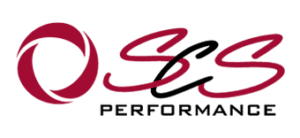Unlocking Business Value: Every Business is Saleable
Essentially every business is saleable; it’s simply the sale value and terms which vary. The issue faced by many business owners is that the sale value/terms available, are significantly lower than they had hoped for.
So if you are seeking a sale exit from your business – you really have the following options available;
- Sale to the Open Market
- Break up and sale of the components (essentially a liquidation of the business for its raw assets)
- Sale to associated entities / employees
Each of these have merit, but come with different costs and benefits which need to be carefully considered before deciding on the right path for your business.
Sale to Open Market
This is generally considered to be the normal exit path expected by most business owners, but it can be more difficult that it seems.
In very brief terms, it involves engaging a Business Broker to market your business, raise the relevant advertising campaign and then prepare an Information Memorandum document which provides a clear description of the business.
Supporting the Information Memorandum is a deeper pack of financial data and business information which is made available to qualified prospective buyers – with all of this information released under some form of confidentiality agreement.
Typical marketing campaigns would include all or part of;
- Direct approach to competition
- This can sometimes be a quick way of attracting interest, as your competition is already familiar with your general business and its market and may see opportunity to either grow or improve margin (or both) by acquiring a competitor.
- A common downside of this is that a more intimate knowledge of the industry can foster a more accurate due diligence to drive down the price. This can also be a very narrow market group of potential buyers, which is generally not helpful if you are looking for some competitive tension.
- Open Market advertising
- The key benefit here is that you are pitching to a far wider market and start to introduce potential buyers who you are not presently aware of.
- Time is often the largest detractor here, as a single business in a large market can sometimes be tough to market effectively. A buyer who is new to the industry will invariably be more concerned about the capture of “industry knowledge” so terms to entangle the vendor for a longer period would be expected.
- Another significant factor here can be the privacy around selling, as open market ad’s can identify your business. If you don’t want to go public with the fact that your business is for sale, then be careful with your advertising.
- Direct approach to other markets
- Perhaps consider the middle of the road approach for the two options above, this is an approach to a related industry to provide greater diversity or vertical integration. This tends to be opportunistic for all parties, but can work favourably with the right entities at the table.
Break up and sale of the components of the business
Essentially a liquidation of the business for its raw assets. This option is normally reserved for businesses who are trading very poorly or simply cannot be sold. Businesses with reasonable asset bases can still recover some money from this option, but yields are generally low.
Sale to associated entities / employees.
In the small to medium enterprise market, this is a common sale method. The purchasers have familiarity with the business, know the customers/products etc and see the opportunity to take the business forward. With planning, this option also allows for the progressive sale of the business over time.
Naturally of course, this option requires staff within the business to have the financial means and skills to run the business. Depending on the size of the business, this may be difficult or as a minimum, require some additional time to finalise a sale.
Other Considerations
Selling a business in the family owned business space generally has a fair degree of emotion attached to it – as the business may; be in its second or third generation, it may have other family members employed and for some owners, it’s may be the only job the owner has ever had.
So when considering the sale of your business, seek some help. Your Accountant will be able to provide guidance about the financial numbers and the potential tax implications, your Solicitor will be required to aid with the sale contract and associated legal guidance, a good Business Broker to actually market your business and facilitate a sale, and then your Financial Planner to outline how best to maximize the investment of the sale proceeds. All of these advisers have their own important, and definable part to play.
Selling a business requires planning, guidance and the right skills to get a good result. So if the sale of your business is looming on the horizon, start the planning now to draw the best result.
For more information on the sale or succession planning for your business, please review our blog library for additional articles. If you are currently looking to improve your business for sale, or are at the point where you want to discuss its sale, contact us today for an objective assessment.












